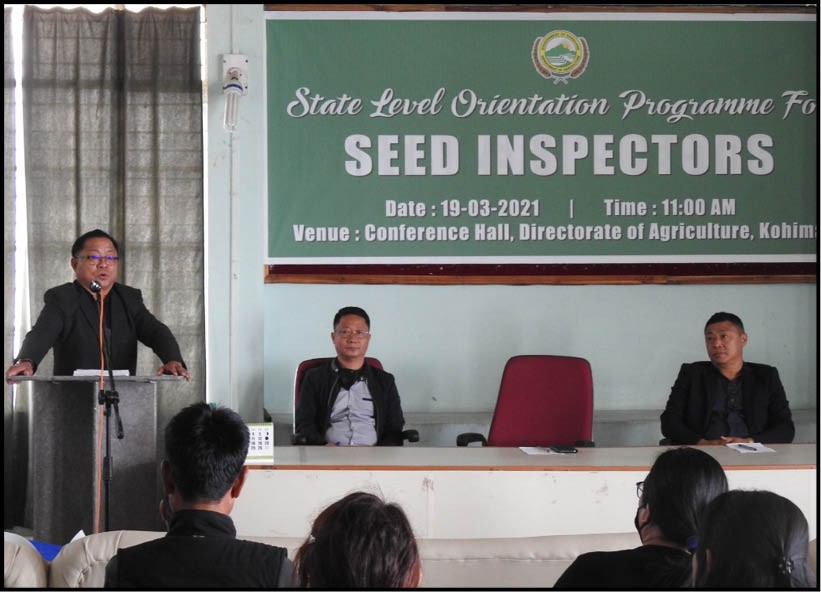Director of Agriculture, M Ben Yanthan addressing the one day State-Level Training programme for Seed Inspectors in Kohima on March 19.

DoA holds orientation training programme for Seed Inspectors
Kohima, March 20 (MExN): Seeds are the most critical input for sustainable agriculture and the sector is highly dependent availability of quality seeds for a productive harvest, Seed Inspectors in Nagaland were told on Friday.
Director of Agriculture, M Ben Yanthan stated this during a one day State-Level Training programme for Seed Inspectors organised by the Department of Agriculture (DoA) at its Kohima directorate on March 19.
In India, seed programme adheres to the limited generation’s system for seed multiplication in a phased manner and it recognises three generations namely breeder, foundation and certified seeds, he added.
Yanthan further informed that Indian seed market has reached a value of 4.9 billion dollar in 2020 and this has been achieved through vital and active participation of both public and private sectors, which laid a strong foundation in the seed sector.
The Director, however, noted that most of the high yielding crop varieties that show promising results in mainland India are not suitable in the hilly areas of the State, due to climatic factors except few pockets in the foothills.
This is the reason why the seed replacement rate and varietal replacement rate are low in Nagaland, he added.
Fortunately, the state has many climate resilient landraces traditional varieties of cereals, pulses, oilseeds, root crops, spices, Yanthan maintained.
250 local cultivars at SARS Yisemyong
“The State Agricultural Research Station (SARS) Yisemyong has been preserving the rich bio-diversity germplasms of paddy at gene bank under NAFCC to sustain our agriculture production system,” he said.
The SARS gene bank has a collection of 250 numbers of local cultivars which is regarded as an asset of the State’s bio-diversity, he added.
He also urged the Seed Inspectors to continue serving the Department and work for farmer’s welfare after learning the detail aspects of their and duties as well as knowledge gained at the orientation.
The resource person, Prof L Tongpang Longkumer, Head of Department (Agronomy) SASRD NU, later trained the Seed Inspectors on their functions and procedures to be followed under the Seed Act, 1966 and Seed Rules, 1968.






